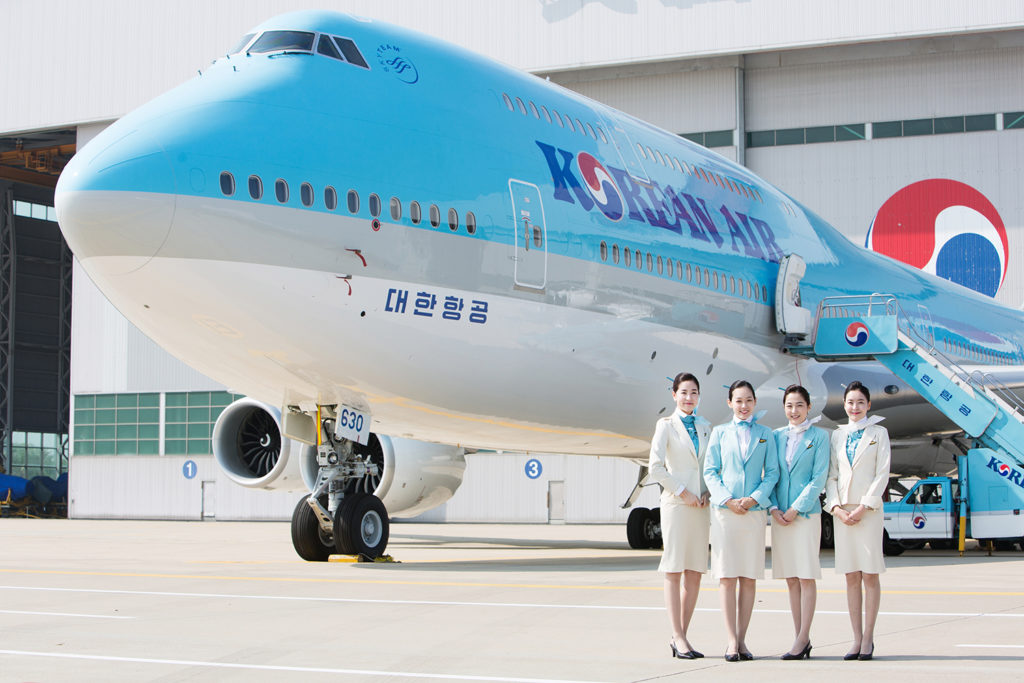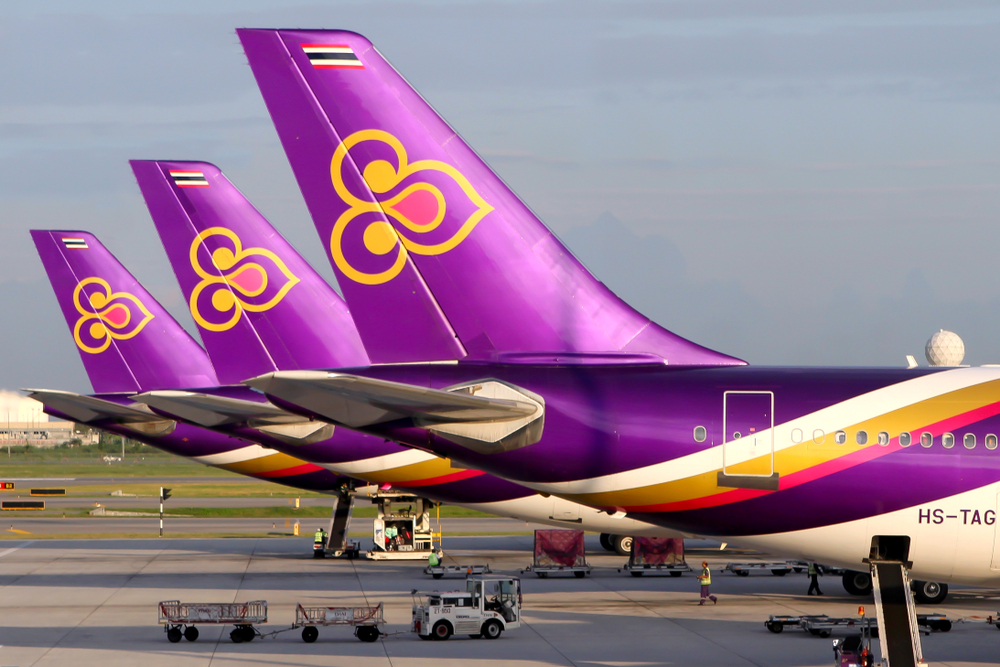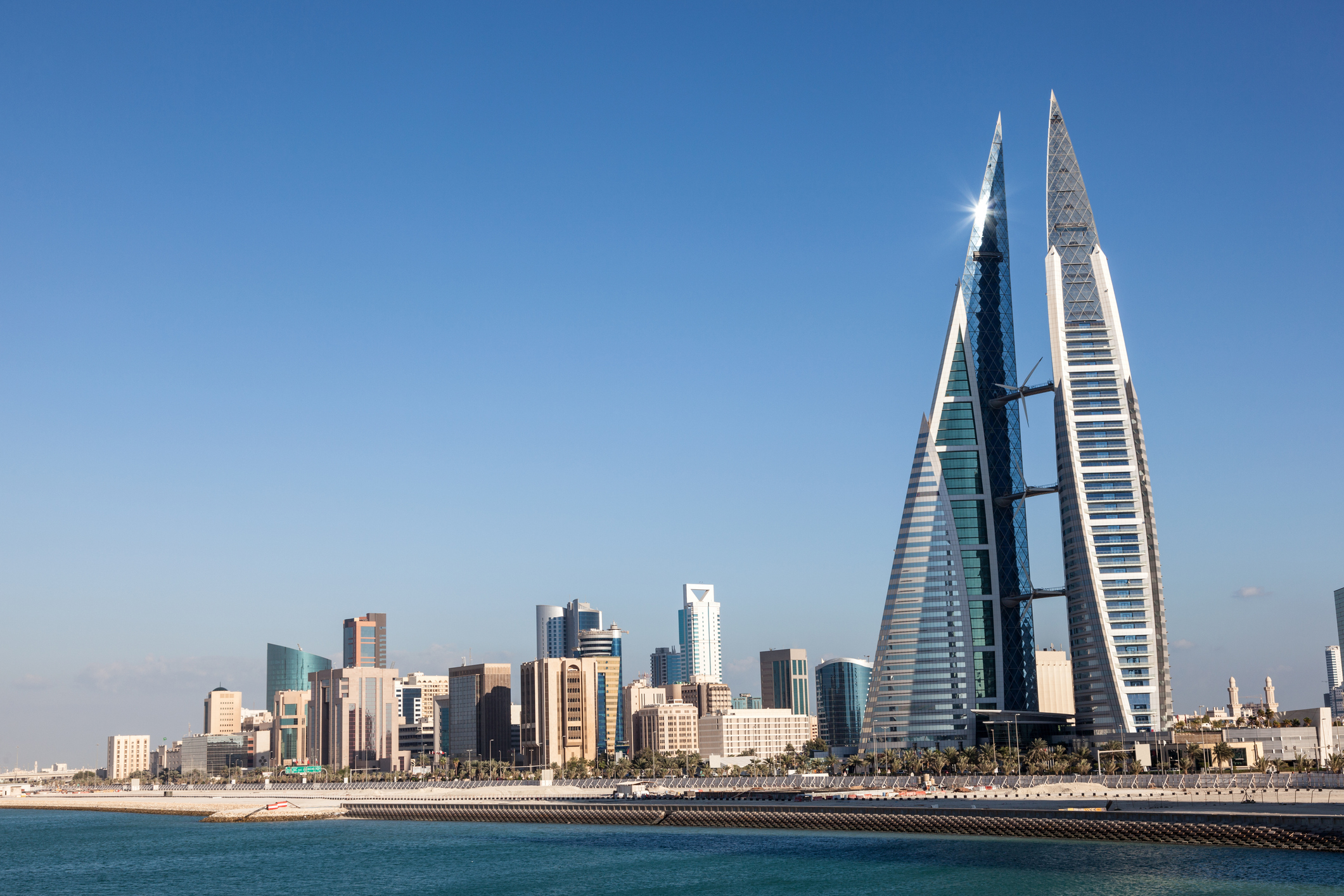Search Results for747
Tel Aviv Airport To Ban Boeing 747s and Airbus A380s
To cut down on noise and air pollution, Israel’s airport’s authority has announced that the use of four-engine planes would be prohibited as of 31 March 2023. The authority said that it had informed airlines that they would no longer be permitted to land big jets at Ben Gurion Airport in Tel Aviv beginning in March 2023 summer season as part of a larger plan under preparation to enhance the local environment. Due to the widespread elimination of 747s and other four-engine planes from service to Israel, the regulation mainly affects cargo flights. El Al, Israel’s national airline, no longer operates any Boeing 747s but instead operates twin-engine Boeing 777s and 787s for its long-haul flights. To get to Ben Gurion, competitors utilise the same Boeing flights or similar Airbus planes; however, some still rely on 747s for cargo.
Korean Air is retiring all Airbus A380s and Boeing 747-8s
Korean Air has announced the end of the long-haul quad-jet era, with the retirement of the Airbus A380 and Boeing 747-8. Korean Air has joined the growing list of airlines planning to retire the Airbus A380, and the carrier's Boeing 747-8 fleet is also on the chopping block. The South Korean flag carrier intends to retire its superjumbos within the next five years, and this includes not only the ten A380s owned by Korean Air but also the six acquired in the $2.2 billion takeovers of rival Asiana Airlines. Asiana's A380 fleet will be merged with Korean Air's by 2024, but the superjumbos will be retired within two years. "The A380s will leave Korean Air's fleet within five years," confirmed Korean Air CEO Walter Cho last week to industry publication FlightGlobal. Korean Airlines was the seventh airline to order the double-decker jet, with the first flight taking place in 2011. Aside from a comfortable first-class lounge and a large business-class cocktail bar, the carrier's own unique touch was a duty-free boutique at the back of the lower deck. The showcase, which was lined with high-end cosmetics, perfumes, and liquor to catch the eye and pry open the wallet or purse, allowed passengers to browse actual items rather than being limited to leafing through a brochure. Each of the bottles on display had a heavy-duty magnet on the bottom to keep it in place during turbulence, though the alcohol was also stowed during taxi, take-off, and landing. Korean Air correctly bet that revenue from increased duty-free sales would more than offset the loss of two rows of economy seating that the boutique replaced, keeping it open for the duration of each flight and staffed by a full-time sales assistant. But, while Korean Air's more modern Boeing 747-8 Intercontinental will temporarily become the SkyTeam member's long-range flagship after the A380 is retired, "the Boeing 747-8I fleet will also follow suit within ten years," says CEO Cho. The future of Korean Air will be dominated by twin-engine jets such as the Boeing 777-300ER and the Boeing 787 Dreamliner, with the possibility of the Boeing 777-9 joining the family. "I believe the Boeing 777 is one of the most successful aircraft in aviation history," Cho said. "If asked, I would say the B777-300ER is my favourite model." "While I haven't ruled out the Boeing 777X, there are some points that still need verification. I may consider it after that, but I don't think we’ll have a large demand for new aircraft for some time as we already have a significant number of aircraft in operation or on order."
Lufthansa phases out A380 and 747’s & launches new business class
As the aviation business starts bouncing back with an unparalleled path ahead cause by the pandemic, airlines will have no choice but make some fundamental changes to their business strategies and focus as much as they can on savings, at least until (if ever) the numbers of passengers return to pre-pandemic levels. Singapore Airlines recently made headlines with further investment in its Airbus A380s, resuming its effort to make cabin upgrades throughout the double-decker plane. However there may be a few other airlines that will follow this path, whilst the majority will invest smaller, more fuel-efficient aircraft with a better carbon emission than the A380. Lufthansa’s has opted for this very latest and more cost savings options that will also be beneficial for the climate. The airline will retire their A380, B747-400s, A340-600s, along with A330-200s, B 767-300s operated by other Lufthansa Group airlines. As confirmed in the company’s 2020 annual report, Lufthansa Group will be adjusting its intercontinental fleets to “reduce complexity, costs and emissions.” As the airline explains in its annual report: Key targets are the systematic renewal of the fleet to cut fuel consumption, reduce carbon emissions and trim the number of aircraft models by retiring and phasing out older, less-efficient aircraft, such as the Airbus A340-600 and A380. Phasing out large aircraft also increases operating flexibility. The fleet is to be scaled back by 150 aircraft compared with the size before the pandemic. It’s not clear when the remaining A380s and 747-400s will be sold or permanently retired, though I wouldn’t be surprised to see them never fly Lufthansa passengers again, considering they’re currently in long-term storage. Most of the fleet updates will impact Lufthansa, though other subsidiaries, including Austrian, Brussels Airlines, Eurowings and Swiss could face significant adjustments, too. As the company explains: The fleet reductions include three B767s at Austrian Airlines, three A330-200s at Brussels Airlines, three A319s at SWISS, five A321s at Eurowings, seven Bombardier CRJs at Lufthansa Cityline, and the entire sub-fleets of A340-600s (17 aircraft) and A380s (14 aircraft) at Lufthansa German Airlines. The A340-600 sub-fleets and the eight A380s remaining after the agreed sale of six aircraft in 2022 and 2023 have been fully decommissioned for several years. The decision was also taken to immediately sell individual aircraft, seven A340-600s, five Boeing 747-400s and prospectively 40 aircraft of the Airbus A320 family. It is not all bad news, though. Lufthansa will continue flying its newer Boeing 747-8s, and the parent company intends to continue making investments, including adding more than 175 aircraft to the fleet over the next decade: Lufthansa is also planning to introduce its new business-class product in 2022, offering far more space and privacy, with an alternating 1-1-1 and 1-2-1 configuration. The airline has been teasing its new seat since 2017, assuming it starts flying next year, we are looking at a long five years wait, with the product that was originally expected in 2020. The Lufthansa Group recently reported a net loss of €6.7 billion for financial 2020 as the Covid-19 pandemic shattered the European and world aviation. Revenue for the year at the airline giant fell 63 per cent, to €13.6 billion, as net debt ballooned 43 per cent to €9.9 billion. Carsten Spohr, chief executive of Lufthansa, said: “The past year was the most challenging in the history of our company – for our customers, our employees and our shareholders. Spohr added: “The unique crisis is accelerating the transformation process in our company - this will be a year of redimensioning and modernisation for us. “The focus will remain on sustainability. “We are examining whether all aircraft older than 25 years will remain on the ground permanently. “From the summer onwards, we expect demand to pick up again as soon as restrictive travel limits are reduced by a further roll-out of tests and vaccines. “We are prepared to offer up to 70 per cent of our pre-crisis capacity again in the short term as demand increases.”
Thai Airways to retire A330’s, A380s, and 747s
As the pandemic continues raging, the recovery in international long-haul travel could still be laying far away. Many countries have closed their international borders, and many impose lots of restrictions that makes travel almost impossible. Airlines currently do not need an extensive fleet of wide-body aircraft to carry passengers across oceans and continents. In fact, the majority of the airlines have temporarily parked their biggest planes in the desert, others are making more drastic long-term plans. The latest fleet downsizing action comes from the national carrier of Thailand, which just announced a major fleet restructuring, according to a report by local newspaper The Nation. Thai Airways will retire all its Airbus A380s and A330s, as well as its iconic B747s, leaving in operation a more modern, widebody, fuel-efficient jets such as the Airbus A350 and Boeing 787, beside the older B777 which in terms of fuel efficiency are better than the B747 and A330 and which are currently listed for sale. If I have made the count correctly on the Thai Airways fleet page website, the fleet downsizing will consist in retiring a whooping 28 aircrafts out of the 80 widebody fleet. Before the pandemic, Thai had one of the most varied long-haul fleets in the sky, with a dash of the most popular Airbus and Boeing jets. A bit too varied in my opinion, which is not financially healthy long-term. Once the fleet restructures takes place a more streamlined fleet, will be less of a financial concern. Thai is not the only airline reducing its fleet due to the pandemic. Last year, below is a list of major airlines that have permanently retired part of their fleet. Air Canada 79 planes B767s, Airbus A319s, and Embraer 190s. Air France 15 planes A380’s American Airlines just over 100 various wide and narrow-body planes Austrian Airlines 28 Planes wide and narrow body. British Airways 67 planes including 57 B747 and 5 B777-200 Delta Air Lines 188 Planes including MD88, MD90, and B777. KLM 25 planes, all B747. Lufthansa 35 Planes including A340-600, A380, and B747. Singapore Airlines 46 Planes all B777-200ER. Virgin Atlantic 32 Planes, including 19 A340 and 13 B747 Emirates may speed up the retirement of 46 of the airline’s 115-strong fleet of A380s. No concrete timeline has been provided yet. Qantas has constantly faced rumours that it will retire its A380 fleet at some point. Qatar Airways may also speed up the retirement of its A380s. United Airlines may follow American’s lead and retire its 767s and 757s. The retirement of aircraft will push airlines to focus on more fuel-efficient widebody aircraft which no doubt will be the future of the aviation industry.
End of an era: British Airways retires its final Boeing 747
British Airways’ remaining two Boeing 747 aircraft based at Heathrow taxied for take off for the last time on 8 October. To commemorate the occasion the airline’s two aircraft took to the skies one after the other from runway 27R. Once in the air, G-CIVY circled back over the southerly runway in an emotional farewell to its home before heading to St Athan where the aircraft will be retired. G-CIVB, painted in the airline's historic Negus livery and G-CIVY, in its current Chatham Dockyard livery, are going to be retiring in the UK at Kemble and St Athan, respectively. Between the two aircraft they have flown an impressive 104 million miles in their 47 years of service and carried millions of British Airways customers. https://d1btjlf89lsb3b.cloudfront.net/BrandID86/720-mp4/BA-747-Farewell-Main_5f7f495b7a0ae_1602177371.mp4 To express its gratitude to the millions of people who flew on the jets, British Airways is also offering a jumbo reduction on seven hundred and forty seven (747) Club World seats which will be on sale. The limited number of ultra-low fare seats are live now to popular destinations that the airline’s Queen of The Skies used to fly to which will include Miami, Dallas and Cape Town. Hundreds of aviation enthusiasts and customers flooded social media sharing their favourite 747 memories using #BA747farewell. Alex Cruz, British Airways’ chairman and CEO said: “With the retirement of our 747 fleet, it was our last chance to see the Queen of the Skies depart from our home at Heathrow airport. The 747s have played a huge role in our 100-year history, forming the backbone of our fleet for over 50 years. I know I speak for our customers and the many thousands of colleagues who have spent much of their careers alongside them when I say we will miss seeing them grace our skies.” In July, the airline announced that its remaining 747s had sadly flown their last commercial services as a result of the impact the Covid-19 pandemic has had on the airline and the aviation sector. The fleet is being replaced by quieter more fuel-efficient aircraft as part of the airline’s commitment to achieving net zero carbon emissions by 2050.
How British Airways bid farewell to first of its last 747 jumbo jets
British Airways has now retired its first Boeing 747 since announcing last month that all 31 of its jumbo jets had sadly flown their last commercial services. The Boeing 747-400, registration G-CIVD, departed from London Heathrow on 18 August at 9am local time under flight number BA9170E after more than 25 magnificent years of flying. British Airways’ fleet of 747s are being retired at an accelerated rate as a result of the devastating impact the Covid-19 pandemic has had on the airline and the aviation sector, which is not predicted to recover to 2019 levels until at least 2024. Al Bridger, director of flight operations in British Airways said: “All of us at British Airways and so many of our customers will have fond memories and special moments from our travels on the iconic jumbo jet. As a pilot who was lucky enough to fly the aircraft, the sheer scale of it was unforgettable, you literally looked down on other aircraft. It changed aviation forever when it arrived in the skies and I know I speak for our customers and the global aviation community when I say, despite rightly moving to more sustainable ways of flying, we will still miss the 747 dearly.” The 747 has been an iconic part of British Airways’ fleet for nearly fifty years. At one point the airline operated 57 of the aircraft, with the jumbo jet’s first flight to New York in 1971. The fuel-hungry aircraft were slowly being phased out by British Airways as they reached the end of their working life in order to help meet the company’s commitment to net zero by 2050. The airline has invested heavily in new, modern long-haul aircraft including six A350s and 32 787s which are around 25% more fuel-efficient than the 747.
Farewell fit for a Queen: Qantas says goodbye to final 747-400 flight
Australia’s national airline has said goodbye to an era of aviation that lasted half a century and encapsulated many major moments in the nation's history. Its final 747-400 plane took off from Sydney Airport. It paraded off the tarmac with an arc of water jet streams to the applause of onlookers eager to mark the historic moment. The plane's flight path, which was tracked online, also paid tribute to the iconic Qantas branding - marking the company's famous kangaroo icon in the skies. The airline’s 747s were first brought into operation in Australia in August 1971. That year the first McDonald’s store opened in the country and Eagle Rock by Daddy Cool topped music charts. The planes made international travel possible for millions of Australians for the first time, but were also used in important milestone moments for the country. In 1974 the 747s were used to rescue 674 people from the destruction caused by Cyclone Tracy in Darwin, while in 2011 they helped evacuate Australians from the dangers of political unrest in Cairo, Egypt and in 2004 flew medical supplies into the devastation of the Boxing Day Tsunami. The fleet’s last-ever mission has been to bring hundreds of Australians home during the coronavirus pandemic from the virus' original epicentre in Wuhan, China this year. Qantas CEO Alan Joyce said in a statement that the 747s were ‘well ahead of its time’. “It’s hard to overstate the impact that the 747 had on aviation and a country as far away as Australia. They have carved out a very special place in aviation history and I know they’ll be greatly missed by a lot of people.” From the Pope to pop stars, the 747s have carried over 250 million people safely to their destinations. Over the decades, it also swooped in on a number of occasions to save Aussies stranded far from home. The airline had bid goodbye to its other plane in the fleet earlier this month. (Source: 9news.com)
Goodbye Queen of the Skies! Qantas bids farewell to Boeing 747 after 50 years
Qantas has organised three special flights so that customers and employees can personally bid farewell to the much loved ‘Queen of the Skies’ ahead of its retirement from the national carrier’s fleet. The three one-hour ‘farewell jumbo joy flights’ depart from Sydney, Canberra and Brisbane. “The 747 has been a magnificent aircraft and it’s fitting that we celebrate the end of five decades of history-making moments for the national carrier and aviation in Australia,” Captain Weaver said. “Since the first 747 joined the Qantas fleet in 1971, these aircraft have operated numerous rescue flights to bring Australians home during times of crisis and provided a safe passage for many travellers taking their first international flight to or from Australia.” These three flights offer the final opportunity to fly on the Qantas 747 before it retires. The first of the three one-hour ‘farewell jumbo joy flights’ will depart on 13 July (Sydney), 15 July (Brisbane) and 17 July (Canberra). The flights will be operated on a cost-recovery basis and profits will be donated to the HARS Aviation Museum at Albion Park (Wollongong) and the Qantas Founders Museum in Longreach to support their efforts to preserve and promote the 747 legacy for future generations. Both museums have a Qantas 747 on public display.
Bahrain submerges Boeing 747 for upcoming underwater theme park
The Bahrain Tourism and Exhibitions Authority (BTEA) has officially announced the successful submersion of its 70-metre long decommissioned Boeing 747, the centrepiece to the upcoming world’s largest underwater theme park, set to open in August 2019. Located off the north coast of mainland Bahrain, 30 km from the Amwaj islands, the underwater spectacle sits approximately 20 metres deep. Now in its desired location, the plane will soon play host to an exceptional new diving experience and international attraction in Bahrain, fostering new coral growth and providing a safe haven for marine life. More items are set to be fabricated and submerged alongside the plane, including a 900-square metre traditional Bahraini pearl merchant’s house, a major contender to boosting the Kingdom’s eco-tourism sector. "The new theme park will undoubtedly emerge as a global tourist attraction." Thanks to a specialist team, required procedures and preparations were put in place, ensuring the project’s strict compliance with international environmental and safety standards. Such events included dismantling and reassembling the aircraft’s wings, removing wires, hydraulic, aerial and fuel systems, adhesive, plastic, rubber, chemical materials, and all possibly-toxic substances to preserve the marine environment. Fully decontaminated from toxic substances, every effort has been taken to limit the project’s environmental footprint and to ensure delivery in the most environmentally sound manner, working in favour of wildlife preservation and research into marine ecology. The minister of industry, commerce and tourism and chairman of BTEA board, HE Zayed bin Rashid Al Zayani, stated, “We are proud to launch this unique eco-friendly project in partnership with local diving companies, the Supreme Council for Environment and the private sector. The new theme park will undoubtedly emerge as a global tourist attraction. The world-class project covers an extensive area and will provide an unforgettable experience for both tourists and diving enthusiasts alike.” The near-to-complete project is in line with BTEA’s long-term tourism strategy, embodying Bahrain’s wider vision to generate future opportunities for tourism and drive full economic growth by 2030.
TDM Global Summit Singapore – 2025
November 24, 2025 | 8:30 AM to 6:00 PM SGT | InterContinental® Singapore , 80 Middle Road, Singapore 188966 DOWNLOAD
AIME 2026: 9–11 February 2026 | Melbourne, Australia
Where the business events world meets in Asia Pacific The Asia Pacific Incentives and Meetings Event – AIME – is
IWTA Awards 2024 cont.
Photos from the Inspiring Women in Travel Awards 2024, held at Intercontinental Bangkok
Inspiring Women in Travel Awards 2024
Photos from the Inspiring Women in Travel Awards 2024, held at Intercontinental Bangkok
Photos from Travel Daily’s Inspiring Women in Travel (Asia) 2023 Awards
Check out the photos from our amazing event
January 2023: Pattaya – GEMS Mining Pool Villa & Resort
THIRSTY THURSDAY PATTAYA JANUARY 2023 PROUDLY SPONSORED BY
December 2022: Phuket – Angsana Laguna Phuket XANA Beach club
THIRSTY THURSDAY PHUKET DECEMBER 2022 PROUDLY SPONSORED BY
Maximum Occupancy 2022: Sheraton Grand Sydney, 5-6 April 2022
Maximum Occupancy is Australia’s premier hotel and accommodation industry conference, designed for and by the hotel industry's leaders. Suited for all types of hotel and accommodation providers and sizes, it will feature over 35+ leading industry experts and speakers from around Australia and the globe. This is THE event for any hotelier that wants to achieve maximum occupancy month after month.
How does a night of luxury including breakfast for 2 sound??
In conjunction with Westin Grande Sukhumvit, TD is giving you the opportunity to experience a night of luxury just by answering this one simple question



















